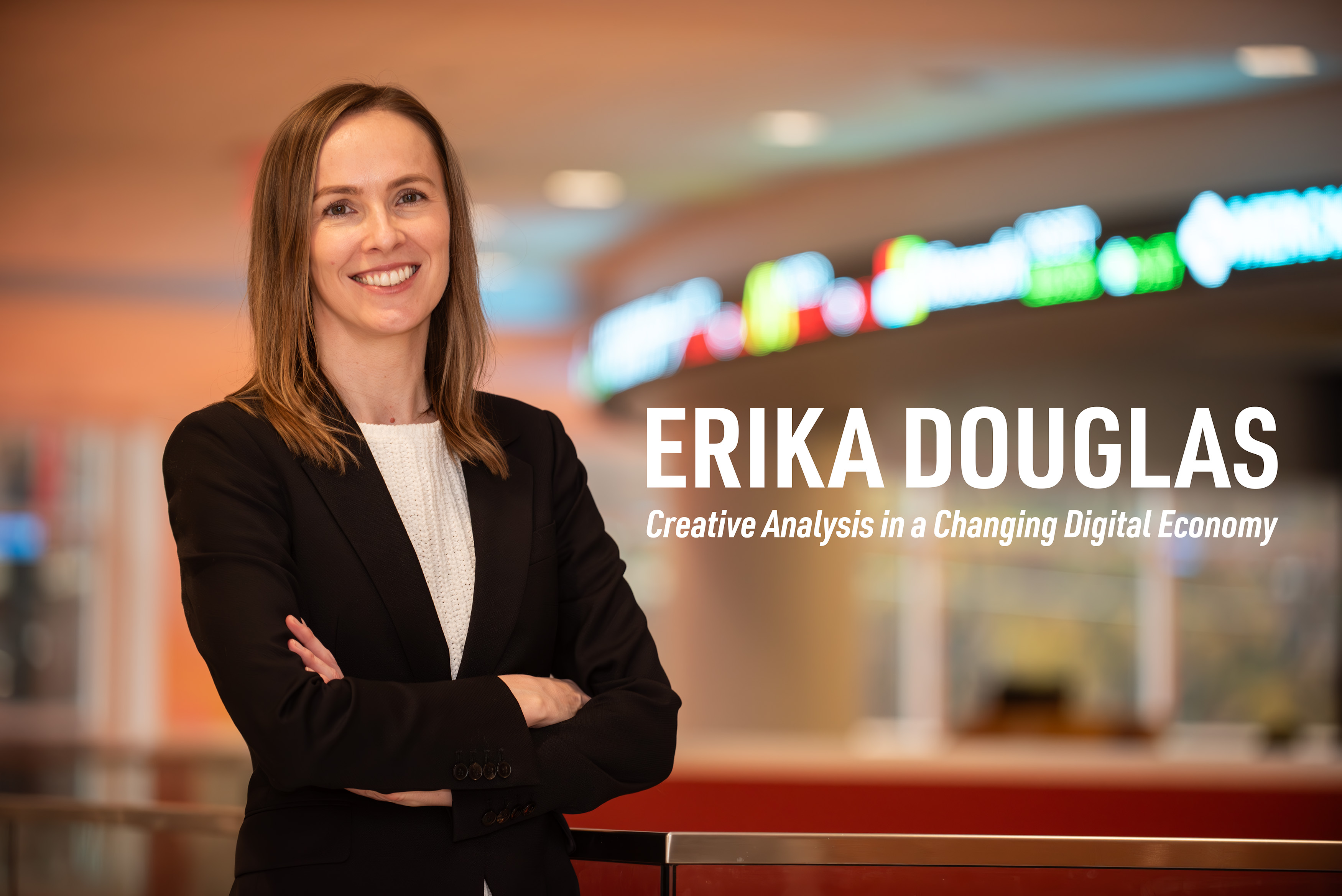
By Suzi Morales
There are antitrust scholars. There are privacy scholars. Erika Douglas is both, studying the intersections of competition and privacy in an evolving digital economy.
“Most scholars write about either antitrust or privacy, not both,” she comments. “I have the joy of being the one person who is steeped in both, and how they interact. Both are massively growing and incredibly intellectually interesting areas of the law that are experiencing unprecedented change in the United States.”
As an associate professor at Temple University Beasley School of Law, Douglas’ work focuses on regulation of the digital economy. A prolific writer on emerging issues, Douglas’ work has been cited by courts and policymakers.
Competition and privacy
Douglas has questioned conventional wisdom that increasing competition among tech companies will give consumers more privacy.
“There’s this sense that if we promote competition, it will also promote privacy, and we’ll have great regulation for these digital companies,” she remarks, but, “that competition can erode our personal data privacy. Consider if there are more social media companies competing to obtain your data and use your data—there can be tradeoffs. To create comprehensive and useful digital regulation, we have to understand that there’s incommensurate values at stake and bargains that we are making.”
Douglas points to Epic Games v. Apple litigation as an example of the interplay between privacy and competitive interests. The case originated when Epic tried to implement a separate payment system for the virtual currency on its popular game “Fortnight.” This would eliminate Apple’s commission on in-app purchases through the Apple App Store. After Apple barred Epic from the App Store, Epic sued, claiming that Apple’s actions were anticompetitive.
The U.S. District Court for the Northern District of California held – and the Ninth Circuit Court of Appeals ultimately affirmed – that Apple could not prevent developers from informing consumers of alternative payment methods but ruled in Apple’s favor on most of Epic’s other claims. Apple established that its actions were to maintain customer privacy, which in turn gave it an advantage over competitors.
“Apple was able to show that it was protecting privacy in order to better compete, connecting together the idea that our privacy is highly relevant to competition in the digital economy and we’re going to have to make decisions about which one we want to emphasize,” Douglas notes. “In some cases, it’s complementary. In some cases, it’s in tension.”
Douglas’ scholarship was widely cited in amicus briefs and by Apple. In particular, her article “Data Privacy as a Procompetitive Justification: Antitrust Law and Economic Analysis” discusses the district court decision and was cited before the Ninth Circuit. In it, Douglas argues that data privacy interests can be a procompetitive justification in defense against antitrust claims if the effect of privacy protections is to improve competition.
The Global Privacy Assembly, a coalition of the heads of privacy agencies from around the world, commissioned Douglas to write an independent academic report on the regulatory spheres of privacy and competition. Her report, “Digital Crossroads: The Intersection of Competition Law and Data Privacy,” includes a comprehensive review of law, policy reports, guidance, speeches, market studies, and litigation filings from around the world.
Creating dialogue, shaping the future
Douglas’ goal is to create a dialogue about competing interests like antitrust and privacy. She also has been appointed to leadership of organizations like independent research organization C.D. Howe Institute, the American Antitrust Institute, and the American Bar Association, where she co-chairs the Privacy and Information Security Committee.
As a practicing attorney before she joined academia, Douglas worked with major tech companies. She became a professor in 2018, the same year the European Union’s General Data Protection Regulation went into effect, bringing about a sea-change in privacy regulation. The adoption of the GDPR led to major shifts in the way that companies handle personal data. In the years since, many U.S. states and the federal government have grappled with what privacy law looks like in the U.S. context.
Similarly, it appears that we are now on the verge of a major shift in internet law. According to Douglas, the way the internet will look for the next fifty years is being determined today. “We’re on the precipice of some big changes in how we approach the law that governs the digital world, like we were in the 1990s when the internet first emerged,” she says. “That’s happening again right now, so it’s an exciting time to be writing about these areas.”
